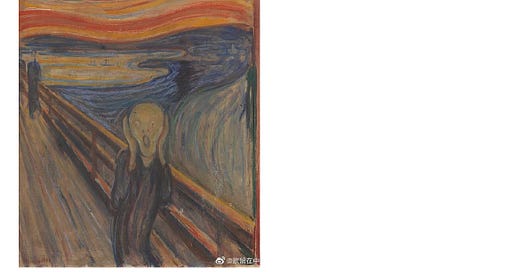It's another June 4 anniversary. So what are China censoring this year?
Western embassies found their posts getting deleted on Weibo. Influencers are told not to post pictures of subjects line up in file.
China’s annual censorship campaign to prevent online discussions of the Tiananmen Massacre has kicked in. Social media influencers and Western embassies alike are reminded not to post anything alluding to the tragedy 34 years ago.
Western embassies in China that posted commemorating social media posts of the Tiananmen crackdown have quickly found those posts deleted by censors.
A screen recording shows that the German embassy posted a video of a burning candle on Weibo. The post was later removed.
The European Union’s account posted a picture of the painting the Scream with caption “We won’t forget. We will never forget those who remember history”. The post was reportedly deleted before reposted.
The Canadian embassy wrote “We remember this day in history. Freedoms of speech, assembly, association and region are universal”. The embassy then posted a screenshot of the post after the original post had been deleted. The screenshot is now also deleted.
The embassy of UK posted a scanned copy of the front page of People’s Daily on June 4, 1989 without any captions. The picture shows how China’s state media reported on the crackdown. The post can no longer be found.
Some Western embassies did not post anything directly linked to the massacre. Sweden posted about a historical event in its own country where soldiers shot and killed five people during a labor protest. Poland sent a post about its first democratic election since World War 2 that took place on June 4, 1989. The post was deleted. But the embassy reposted a screenshot of the post.
My testing shows that keyword “embassy” has been censored on Weibo. Other censored words and phrases include “democracy,” “tank“, “that year“, “the turn between Spring and Summer” and “candle”.
Phrase “subjects lined up in file” (物体排成一排) is also censored on Weibo. The phrase alludes to the famous “Tank Man” picture, where a man was recorded standing in front of a line of tanks during the crackdown in Beijing, attempting to stop their advance.
A leaked memo from Douyin, TikTok’s Chinese version, says that influencers and brands are not allowed to post any pictures showing “subjects lined up in file” from June 3 to 5. “Old photos that give vintage vibes” as well as pictures of crowds and numbers that “have uncertain meanings” are also banned, in addition to tanks, candles and Hong Kong celebrities.
WeChat Index, a mini app within WeChat that collects data of keyword trends on the platform, has censored words like “Tiananmen”, “square”, “tank” and others.
On June 3, a woman was seen waving a banner that had American flags on it and scattering copies of the Declaration of Independence over a concert crowd at Beijng’s National Stadium. Later, Weibo censored “Declaration of Independence”. China Digital Times found that posts containing the phrase have to be reviewed by censors before becoming publicly viewable on the platform.





